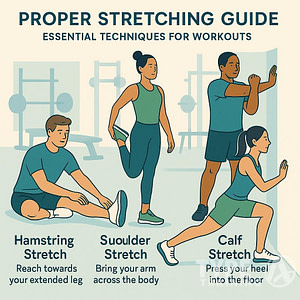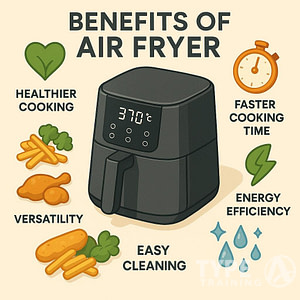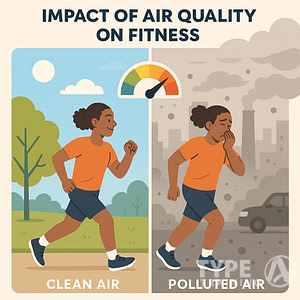Water fasting is a dietary practice in which you consume only water for a set period. This approach to fasting has gained attention for its potential benefits, including weight loss and improved health markers. Traditionally, it has been used for spiritual and religious reasons, but today, people often turn to water fasting for detoxifying the body, resetting dietary habits, or as part of a lifestyle change.
Before diving into a water fast, it’s crucial to understand the process and prepare adequately. Knowing how to execute a water fast safely and what to do during the post-fast recovery are vital to minimize risks and side effects. It is also important to be able to distinguish between the myths and facts surrounding water fasting, ensuring a well-informed approach to this dietary practice. For those considering water fasting, consulting with a healthcare provider is an important step to ensure it’s suitable for your particular health situation.
Key Takeaways
- Water fasting involves abstaining from all food, drinking only water for a specified time.
- Safe execution and post-fast recovery strategies are important to reduce potential risks.
- Consulting a healthcare professional before starting a water fast is highly advisable.
Understanding Water Fasting
Image Credit: svalbardi.com/blogs/water/fasting
Popular posts:
Water fasting is a practice that has garnered attention for its potential health benefits and historical significance. This form of fasting requires a commitment to consuming only water for a specific duration, often for 24 to 72 hours.
Definition and Fundamentals
Water fasting involves abstaining from all food and beverages except for water. During a fast, your body shifts from using glucose for energy to utilizing fat stores, a state called ketosis. This process can promote autophagy, where cells recycle damaged components, potentially leading to healthful effects.
- Duration: Typically 24 to 72 hours.
- Consumption: Only water is consumed; no foods or other drinks.
- Purpose: Goals can range from weight loss to detoxification.
Historical and Spiritual Context
Historically and across various cultures, fasting has been intertwined with religious and spiritual practices. It’s often observed as a period of reflection, sacrifice, or penance. Many religious fasts involve abstaining from food and drink for certain periods to foster spiritual growth and discipline.
- Spirituality: Aims for inner cleansing and renewal.
- Tradition: Integral to many cultural and religious ceremonies.
- Discipline: Enhances focus and mindfulness through self-denial.
Whether you’re considering water fasting for health or spiritual reasons, understanding its principles and background can guide you in approaching it safely and with intention.
Benefits of Water Fasting
Image Credit: perfectketo.com/water-fasting/
Water fasting has been recognized for its potential to activate beneficial biological processes in your body, ranging from weight management to improving various health markers. Here’s an exploration of the specific benefits you might experience.
Autophagy and Cellular Health
Image Credit: drjockers.com/activate-autophagy/
During water fasting, your body initiates a process known as autophagy, which helps to clear out damaged cells and regenerate new ones. This cleansing routine plays a crucial role in maintaining cellular health and can support your body’s immune function.
Weight Loss and Metabolism
A significant advantage of water fasting is its ability to aid in weight loss. When you fast, the body depletes its glucose stores and enters a state of ketosis, which promotes fat burning and may boost your metabolism.
Impact on Longevity and Aging
Research suggests that water fasting may have a favorable impact on longevity and the aging process. Although definitive human studies are ongoing, animal studies have highlighted a potential for increased lifespan and health span due to caloric restriction.
Improvement in Blood Markers
Water fasting can influence various blood markers positively. You may observe a reduction in blood pressure and cholesterol levels, contributing to better heart health. These changes can reduce the risk of chronic diseases and improve overall health.
Medical Considerations
Before embarking on a water fast, it’s critical to consider the potential health impacts and to understand who should avoid this practice. Certain chronic health conditions can be affected by fasting and it’s imperative that you seek medical supervision to avoid complications.
Who Should Avoid Water Fasting
- Pregnant or breastfeeding women: The nutritional demands during pregnancy and breastfeeding are high, making fasting potentially unsafe.
- Individuals with eating disorders: Water fasting can exacerbate these conditions.
- People with certain diseases: If you have kidney disease, cancers, or type 1 diabetes, fasting may pose serious health risks.
- Those with type 2 diabetes or high
blood pressure : These conditions require careful management of medication and blood sugar levels, which can be disrupted by fasting.
Effect on Chronic Health Conditions
- Diabetes: Both type 1 and type 2 diabetes can be significantly affected by water fasting, potentially causing dangerous shifts in blood sugar levels.
- Heart disease: There’s limited evidence that water fasting may impact heart disease, but it should be approached with caution.
- Hypertension: If you suffer from high
blood pressure , fasting may interfere with yourblood pressure regulation and medication.
The Need for Medical Supervision
- Monitor vital signs: To manage the risks associated with fasting, particularly for those with chronic health conditions, medical supervision is crucial.
- Adjust medications: Healthcare professionals can help adjust your medications, if necessary, during a water fast to maintain health and safety.
It is essential to prioritize your safety and health by consulting a healthcare provider before starting a water fast, especially if you have underlying health issues.
Preparing for a Water Fast
Before you embark on a water fast, it’s crucial to prepare your body and mind for the experience. This preparation ensures a smoother transition into fasting and minimizes potential stressors on your body.
Dietary Adjustments Pre-Fast
Begin reducing your intake of processed foods and increase consumption of whole, plant-based foods at least one week prior to your fast. Your goal is to minimize digestion stress and start depleting your body’s glycogen stores, which aids in the quicker onset of ketosis—where ketones become your primary energy source.
- Days 7-5: Gradually eliminate complex carbohydrates and focus on vegetables, fruits, and lean proteins.
- Days 4-2: Transition to a mostly liquid diet like smoothies and broths.
Setting Realistic Goals
Setting clear, achievable goals for your fast is essential. Determine the duration of your water fast, considering both your physical health and previous fasting experience. Keep in mind that a water fast usually lasts anywhere from 24 hours to a few days. Always consult with a healthcare professional before starting.
- Set a specific start and end time.
- Clearly define your objectives (detoxification, spiritual, weight loss, etc.).
Hydration and Nutrient Considerations
Proper hydration and nutrient balance are crucial. During a fast, your body will still need essential electrolytes such as sodium, potassium, and magnesium, which help regulate nerve and muscle function, hydration, and pH balance.
- Aim to drink mineral water to replenish electrolytes.
- Monitor your body’s signals closely. If you feel excessively tired or unwell, consider ending the fast or seeking professional advice.
Remember, preparation is a vital step toward a successful and safe water fast.
Executing the Water Fast Safely
Before embarking on a water fast, it’s crucial to plan carefully and understand the importance of managing the duration and frequency, closely monitoring health markers, and ensuring proper hydration to safeguard your well-being.
Duration and Frequency
A sensible approach to water fasting involves starting with shorter duration fasts and observing your body’s response. Limit your water fast to 24-48 hours if you are a beginner. For extended fasts, consulting with a medical professional is essential, especially for periods beyond 72 hours, to prevent any adverse effects such as dehydration or hypoglycemia. Adhere to a frequency of fasting that allows adequate recovery time, ensuring no more than once a month for prolonged fasts.
Monitoring Health Markers
Monitoring health markers during a fast is vital. You should watch for signs of low blood sugar levels, which can lead to symptoms like dizziness and fatigue. If you experience severe symptoms, you may need to end the fast. Using a glucose monitor to check your blood sugar levels can provide immediate feedback. Regularly check your
Hydration Management
Hydration management is pivotal during a water fast. Aim to drink at least 8-10 glasses of water daily to maintain hydration, but avoid overconsumption, which might lead to water intoxication. Listen to your body’s thirst signals and respond accordingly. Avoid high-intensity exercise during the fast, which increases the risk of dehydration. If you feel symptoms of dehydration, such as dark urine, dry mouth, or extreme thirst, increase water intake gradually, and consult a medical professional if symptoms persist.
Post-Fast Recovery
After completing a water fast, it’s important to carefully reintroduce solid foods to your diet. Proper recovery strategies can prevent refeeding syndrome, preserve muscle mass, and restore insulin sensitivity.
Refeeding Guidelines
Your approach to food intake after fasting should be slow and gradual to reduce the risk of refeeding syndrome—a potentially fatal condition caused by rapid refeeding after a period of malnutrition. Start with easily digestible foods such as:
- Broths
- Cooked vegetables
- Fruits
Day 1 might include small meals every few hours, emphasizing foods rich in electrolytes like potassium, magnesium, and phosphorus to replenish your body and aid in recovery.
Managing Suppressed Appetite
It’s normal to experience a suppressed appetite post-fast. Listen to your body and eat small portions; do not force-feed. Foods that can help stimulate your appetite and are also gentle on the stomach include:
- Plain yogurt
- Applesauce
- Rice cakes
Physical Activity Post-Fast
Ease back into physical activity to prevent muscle fatigue and preserve muscle mass. Start with light exercises such as walking or stretching. As your food intake and energy levels normalize, you can gradually reintroduce more strenuous activities. Remember to focus on:
- Hydration: Keep drinking water to stay hydrated.
- Rest: Allow sufficient time for your body to recover.
- Listen to Your Body: Pay attention to any signs of distress or discomfort.
Common Risks and Side Effects
Water fasting, where you consume only water and no food for a period, can lead to several risks and side effects such as dizziness, fatigue, and headaches. Being aware of these risks is crucial for your safety during a fast.
Dealing with Dizziness and Fatigue
Dizziness and fatigue are common side effects due to decreased calorie intake and potential dehydration. To prevent these symptoms, it’s important to:
- Stay Hydrated: Ensure you drink enough water throughout the day.
- Move Slowly: When moving from a sitting or lying position to standing, do so gradually to avoid orthostatic hypotension.
Overcoming Headaches and Irritability
Headaches can occur as your body adjusts to the lack of food intake and fluctuating blood sugar levels. Irritability often accompanies headaches. To manage these issues:
- Rest: Give your body a chance to adapt by allowing for more rest during the fast.
- Stress Management: Practice relaxation techniques like deep breathing or meditation.
Electrolyte Imbalance and Its Prevention
An imbalance in electrolytes, such as sodium, potassium, and magnesium, can lead to hyponatremia or other health issues. Uric acid levels can also increase, leading to gout or kidney stones. To prevent these conditions:
- Monitor Electrolytes: Consider drinking electrolyte-enhanced water or broth if your fast permits.
- Ease into Fasting: Gradually shorten your eating windows instead of jumping into an extended fast.
Distinguishing Myths from Facts
When approaching water fasting, it’s essential to separate truth from fiction for an informed decision. Here, we’ll dive into widespread beliefs and contrast them with what science says about the practice’s benefits and potential risks.
Addressing Common Misconceptions
Myth: Water fasting is the same as intermittent fasting.
- Fact: Water fasting involves strictly drinking water and not consuming any calories for a period, which differs from intermittent fasting where you cycle between periods of eating and fasting with calorie intake allowed during specific times.
Myth: Water fasting automatically leads to better overall health.
- Fact: While fasting may reduce markers of inflammation and initiate ketosis, the state where your body burns fat for fuel, its effect on health varies and should be considered against individual health statuses.
Evidence-Based Benefits and Drawbacks
Benefits:
- May induce ketosis, aiding in fat loss.
- Possibly reduces inflammation and improves certain markers of health.
Drawbacks:
- There is a risk of health complications, such as nutrient deficiencies or electrolyte imbalances.
- The dangers of water fasting can include severe symptoms and the rebound effect of binge eating once the fast concludes.
It’s crucial to consult with a healthcare provider to align any fasting practice with your specific health needs and to understand the research-backed outcomes of water fasting.
Alternatives to Water Fasting
Image Credit: blog.kissmyketo.com
If you’re exploring fasting for health benefits but find water fasting too extreme, consider other methods that provide flexibility while promoting well-being. These alternatives can support your goals without the need for strict water-only fasts.
Intermittent Fasting and Time-Restricted Eating
Intermittent fasting (IF) involves cycling between periods of eating and fasting, which can vary in duration. Common IF methods include the 16/8 method, where you eat during an 8-hour window and fast for 16 hours, or the 5:2 method, where you consume your normal diet for 5 days and limit your intake to about 500-600 calories on 2 non-consecutive days.
- Health Benefits: Studies suggest IF may help with weight management and can improve health markers linked to diseases, such as reduced inflammation and improved heart health.
- Considerations for Obesity and Health Conditions: If you’re dealing with obesity or other health conditions, IF may help manage weight and metabolic health. However, you should consult with a healthcare professional before beginning an IF regimen.
Juice Cleanses and Detox Diets
Juice cleanses, also known as juice fasts, usually involve consuming only fruit and vegetable juices for a set period, often ranging from a few days to several weeks. These diets aim to detoxify the body and provide nutrients. Another approach is the lemon detox cleanse, which includes lemon juice, water, maple syrup, and cayenne pepper.
- Variation with Nutritional Benefits: For a more balanced approach, consider the Mediterranean diet. This diet emphasizes fruits, vegetables, whole grains, legumes, and healthy fats while allowing more variety and nutrition compared to juice cleanses.
Note: While these alternatives may offer a gentler approach compared to water fasting, always prioritize safety and tailor your diet to meet your individual health needs.
Lifestyle Integration
Integrating water fasting into your lifestyle requires careful consideration of your health and daily routines. This adaptation can have implications for your overall health, particularly if you’re managing conditions like insulin and leptin sensitivity, or dealing with stress and overweight challenges.
Incorporating Water Fasting into Routine
To incorporate water fasting into your routine, evaluate your current health status with a healthcare provider, especially if you have an eating disorder or nutrient deficiencies. Begin with short fasting periods to assess how your body responds. Mark fasting days on your calendar to ensure consistency without disrupting your obligations.
- Start small: Try a 12-hour fast, gradually increasing the duration.
- Plan ahead: Arrange fasting days when you have fewer physical demands.
- Monitor closely: Pay attention to your body’s signals of stress or discomfort.
Balanced Diet and Maintenance
A balanced diet is crucial for maintaining health benefits post-fasting. Focus on nutrient-rich foods to replenish your body and avoid the potential risks of nutrient deficiencies.
- Work with a Nutritionist: They can help tailor your diet to support your fasting regimen.
- Mindful Eating: Post-fasting, prioritize meals that are high in fiber, protein, and healthy fats.
- Include Variety: Aim for a colorful plate with vegetables, fruits, whole grains, and lean proteins.
- Stay Hydrated: Continue to drink plenty of water outside of fasting periods.
Frequently Asked Questions about Water Fasting
In this section, you’ll find detailed answers to common questions about water fasting, from its health benefits to how it should be conducted.
What are the health benefits of water fasting?
Water fasting may initiate autophagy, a process where your body cleans out damaged cells. It can also contribute to weight loss and potentially lower
How much weight can one expect to lose during a water fast?
The weight loss during a water fast can vary. Initially, you might experience significant weight reduction due to the absence of food intake and loss of water weight.
What are common symptoms that indicate one should stop a water fast?
You should halt your water fast if you experience severe weakness, dizziness, confusion, or fainting. Hydration is crucial; excessive thirst or dark urine are signs that you need to stop.
What physical and mental effects does a 72-hour water fast have on the body?
A 72-hour water fast can lead to mental clarity for some, though you may face challenges like headaches or fatigue. Physically, your body will use stored glucose and later fat for energy, which often triggers weight loss.
How does water fasting affect the body before and after the process?
Before a water fast, your body uses glucose from food. During the fast, it transitions to ketosis, burning fat instead. Afterward, reintroducing food must be done slowly to prevent refeeding syndrome.
What precautions should be considered to ensure water fasting is done safely?
To water fast safely, stay hydrated, listen to your body, and consider consulting a healthcare provider before, especially if you have medical conditions or are taking medications.













